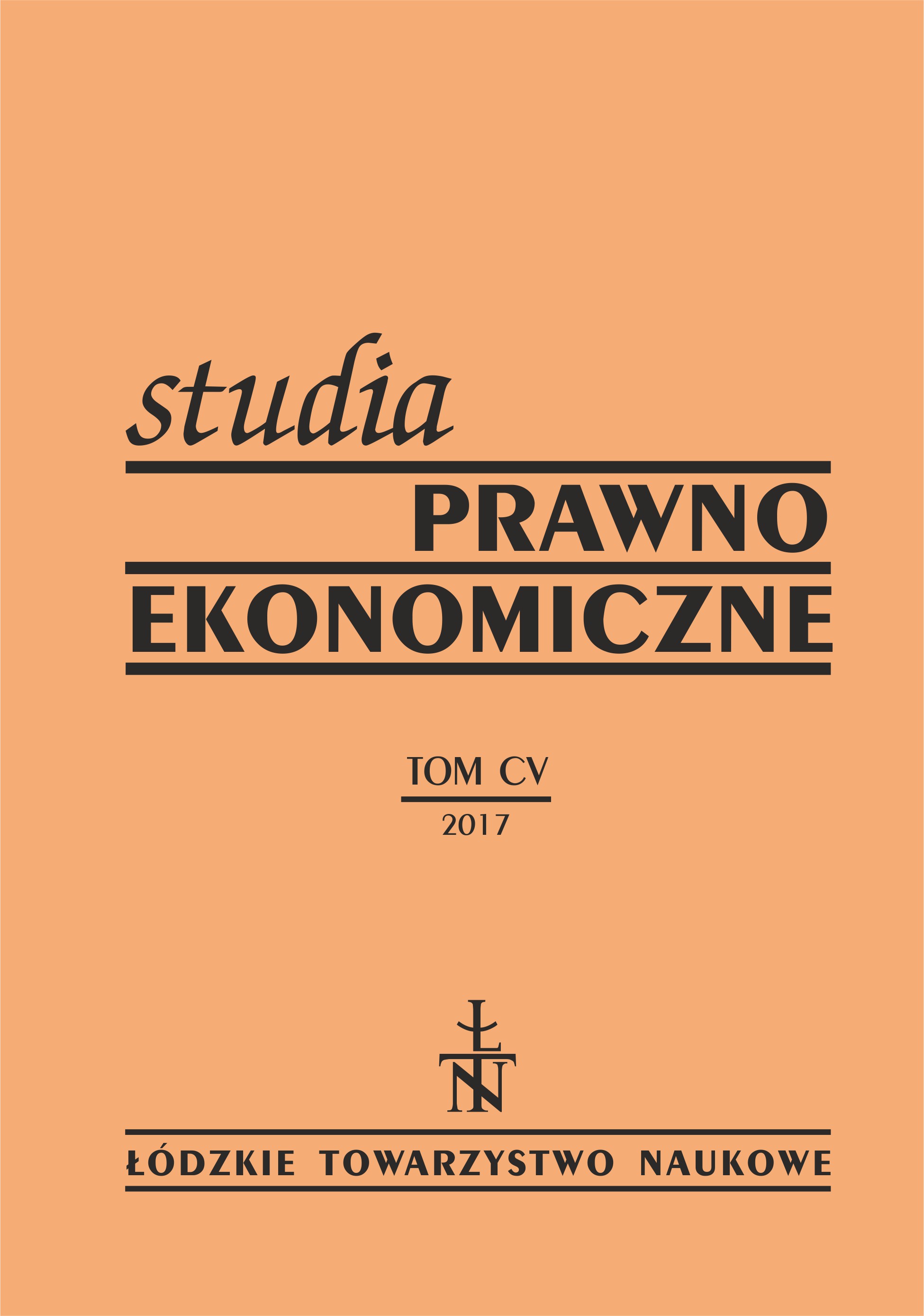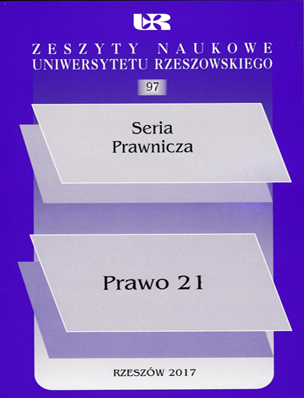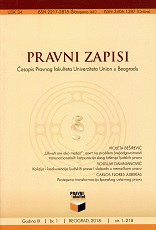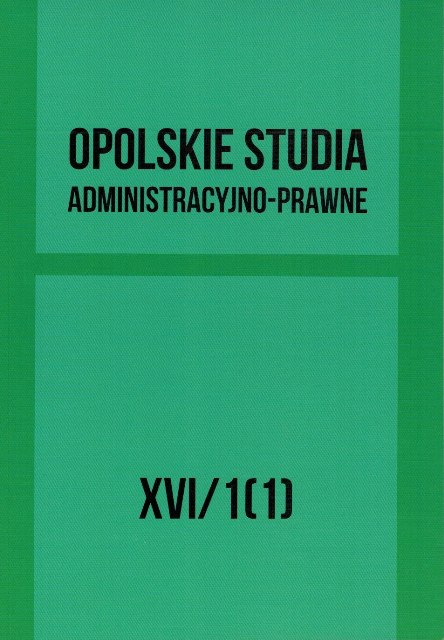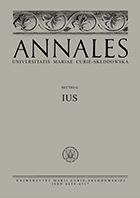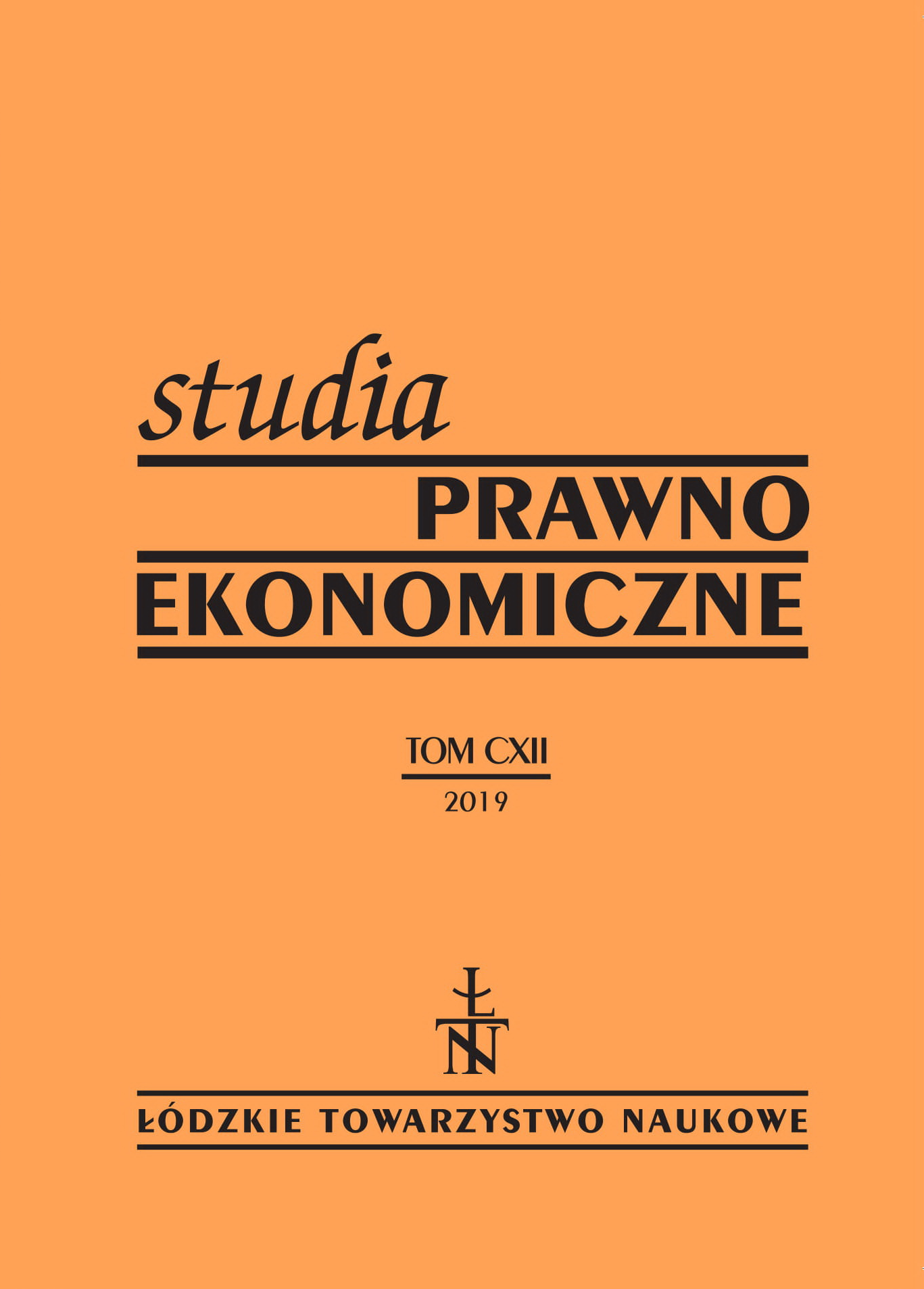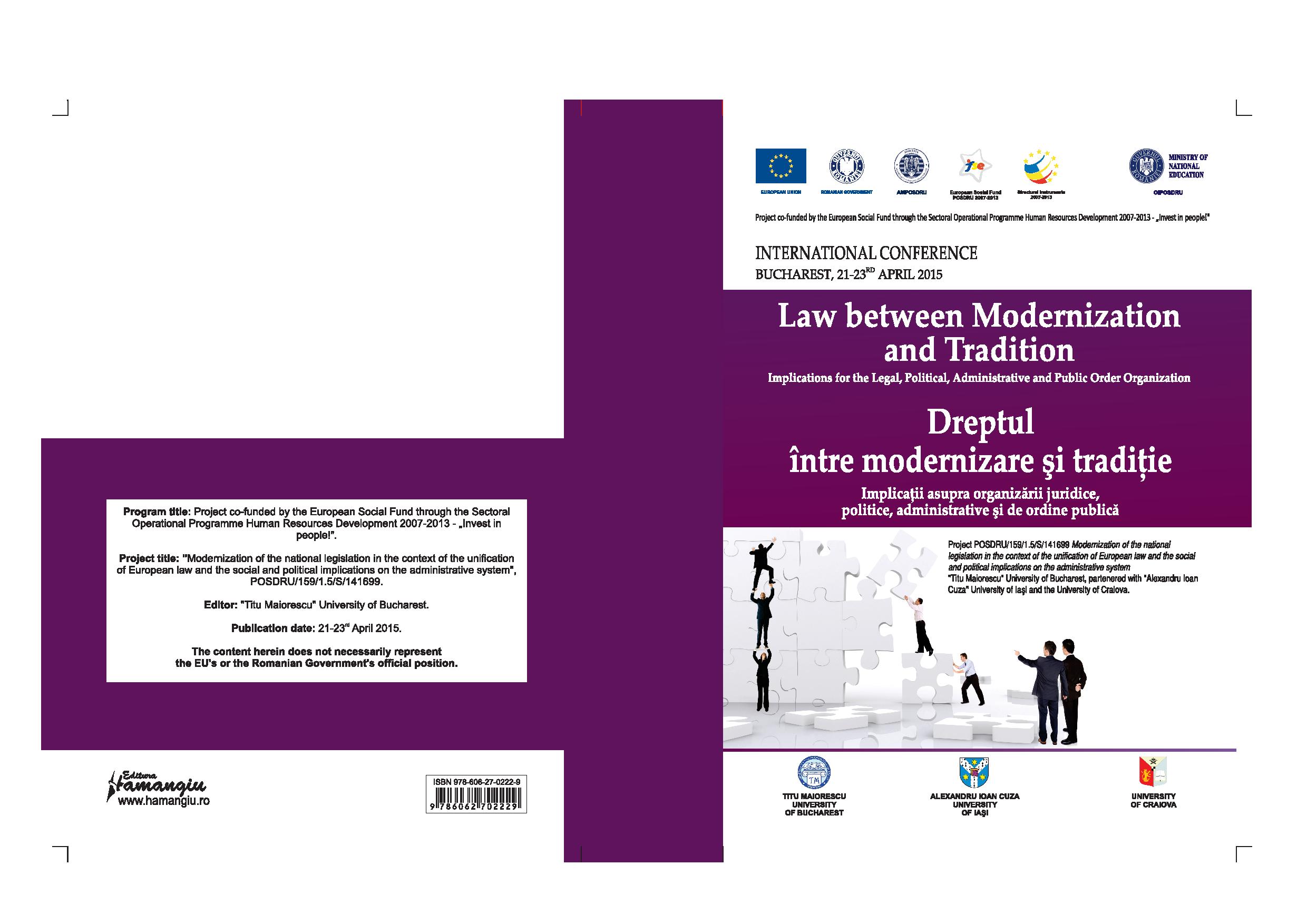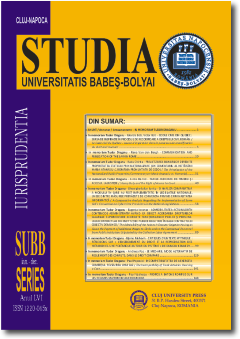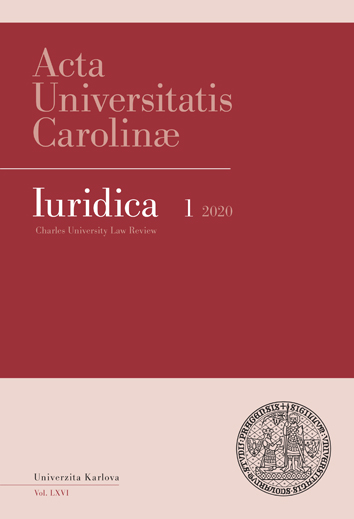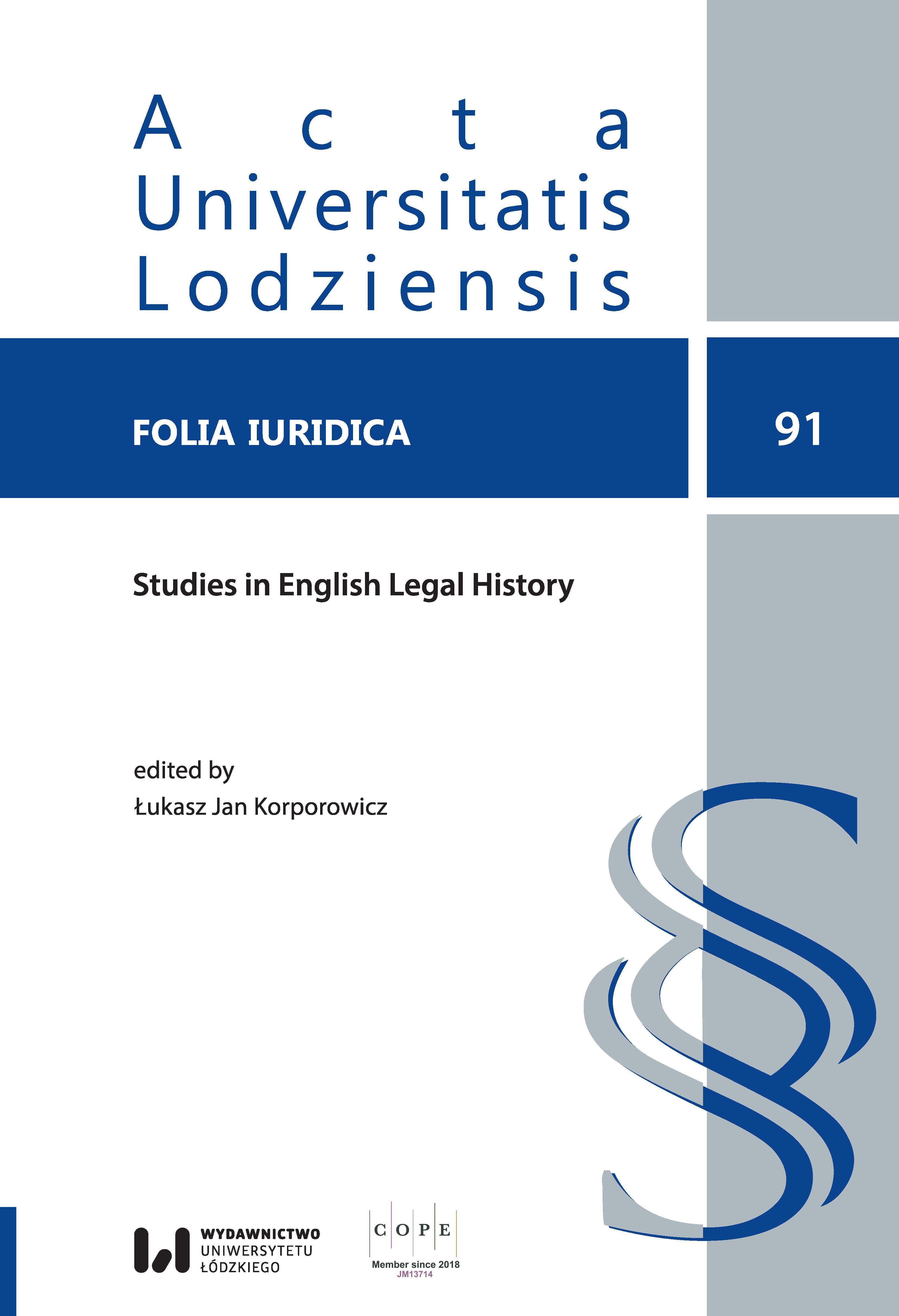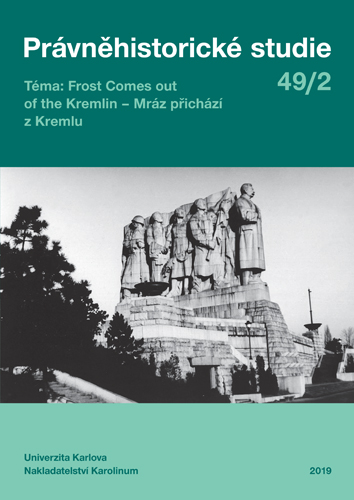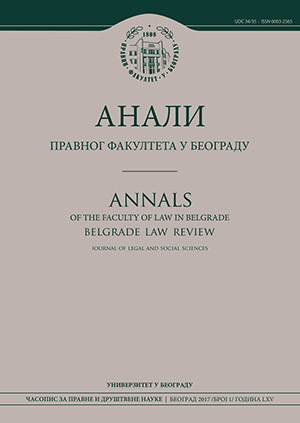
ВИНСКЕ ПОСУДЕ (VASA VINARIA) У РИМСКОМ ПРАВУ
The notion of “wine vessels” in Roman law comprises all the wine containing recipients. There is no legal standardization of wine vessels by means of volume, and although the terms amphora, urna and culleus are used to designate both the vessels and the units of measure, these are two different meanings of the terms. In regard of the question, whether the vessels make appurtenance of the wine, jurisprudents of proculean school divided them in two categories. In the first category are those that follow legal status of wine, usually amphoras and other jars (cadi) which are used for “packaging”, i. e. “bottling” of the wine. The second category make mostly vats (cuppae) and ceramic cisterns (dolia), which don’t follow legal status of wine, making instead part of farming equipment of a landed property (instrumentum fundi) and it’s appurtenance. But, the roman jurists are not consistent regarding criteria for distinguishing these two categories.
More...
